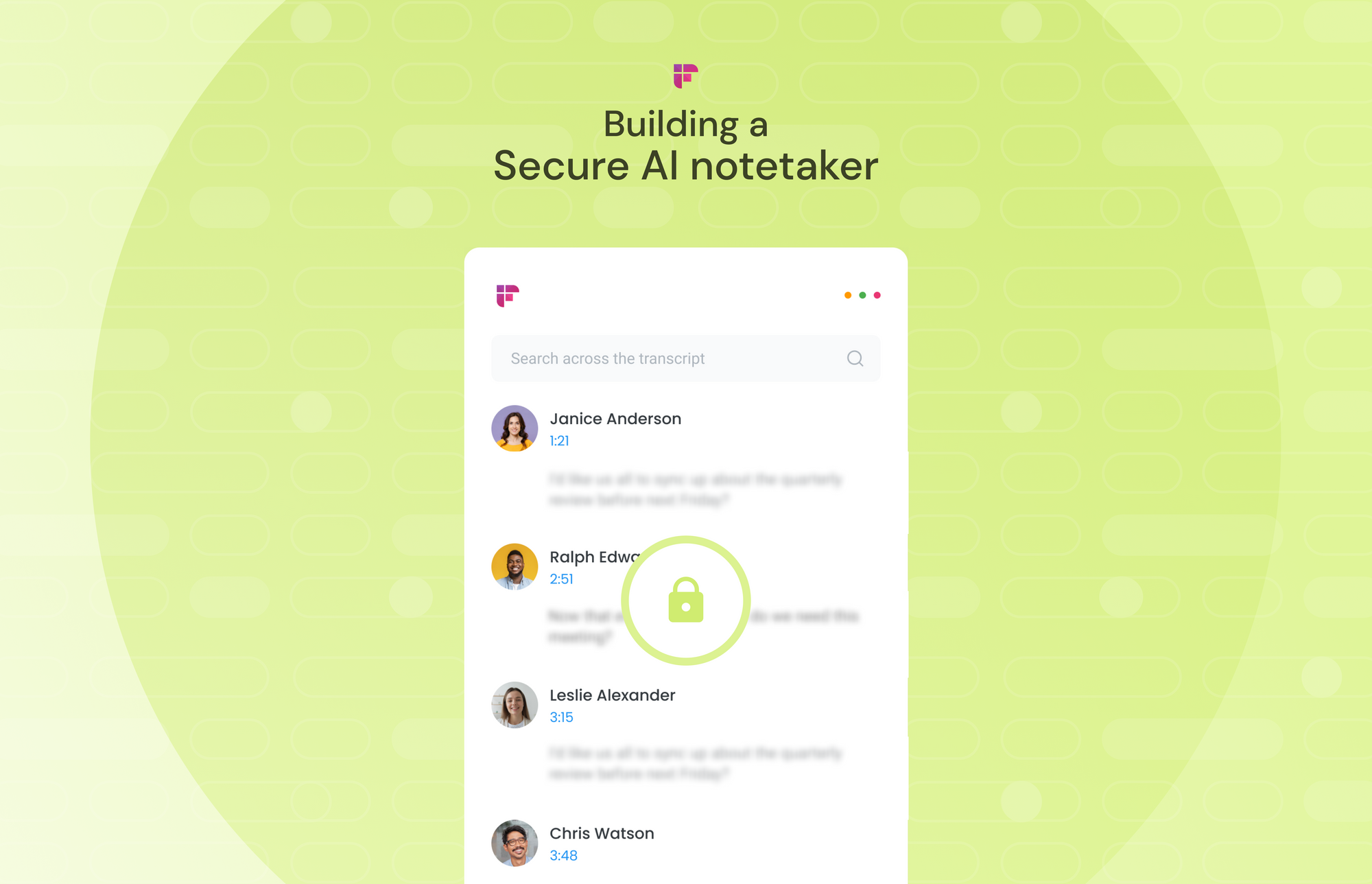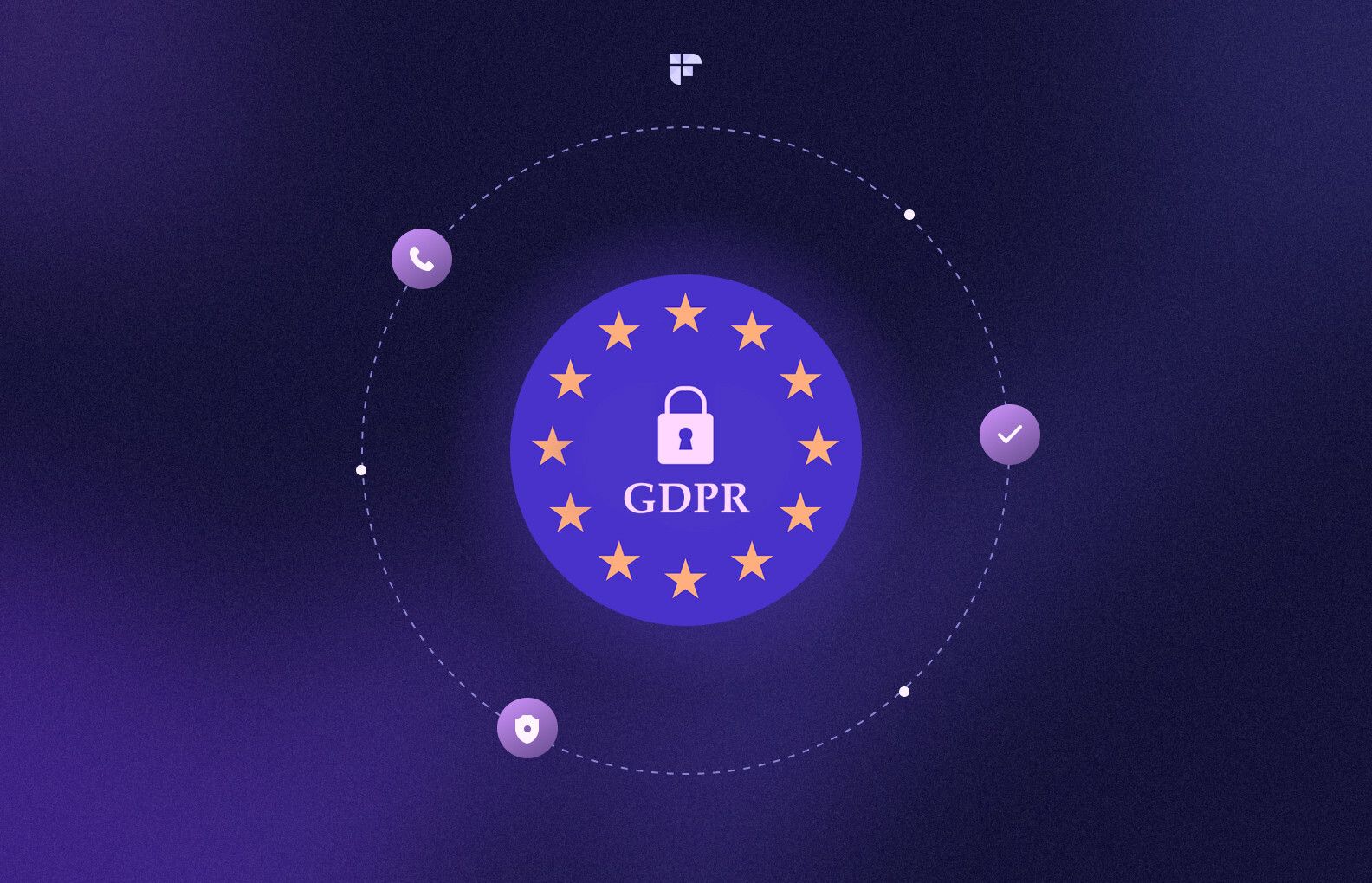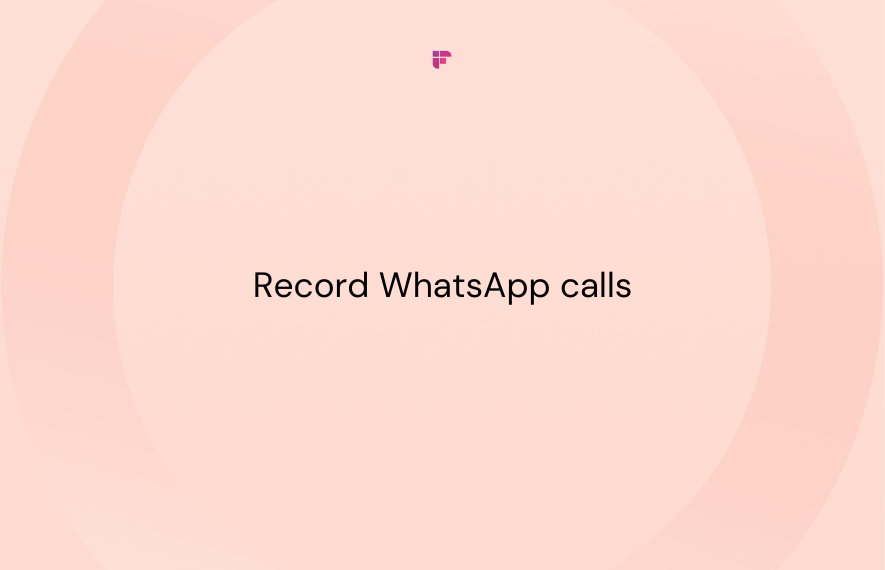"Your call is being recorded for training and quality purposes." We've all heard this phrase quite often. And there is a reason behind it. Businesses have to comply with call recording laws or other regulations such as GDPR.
GDPR, call recording laws, or data privacy are more than just buzzwords. They can have serious implications. This article will look at 7 best practices for complying with GDPR when recording calls.
Call recording, also known as voice recording or voice logging, enables companies to document individual and group calls. Phone networks such as Public Switched Telephone Networks (PSTN) and Voice Over Internet Protocol (VoIP) can record calls and convert them into audio files.
You can also capture calls using AI transcription software, which records and transcribes them for future fact-checking. A recorded call can be saved, replayed, or distributed for various purposes, such as:
- Training personnel in customer service since feedback is easier to give when listening to playbacks.
- Improving employees' problem-solving skills and the overall quality of calls.
- Proving a business' compliance.
- Providing customer insights to marketing teams to help them understand their audiences, boost sales, support case studies, and develop innovative ideas.
Although the practice of call recording has its benefits, there are also a few disadvantages. Aside from potential legal and data privacy issues, audio storage and access can be expensive, and some employees and clients may oppose call monitoring.
What is GDPR?
The General Data Protection Legislation (GDPR) is a by-law on data security and privacy. Passed on May 25, 2018, in Europe, the GDPR provides recording calls, customer consent, and data collection guidelines. It sets restrictions on what businesses can do with customer data and how people can access it.
This includes securing private information like name, contact details, location, social media activity, IP address, and other personal information.
The GDPR was enforced especially for call centers because, before this law was enacted, calls were regularly recorded for training and obtaining customers' comments. But it eventually created the need for a security and privacy law.
Because of GDPR and call recording, many organizations had to adjust their data collection and usage practices. Meanwhile, the implementation of the GDPR also influenced countries outside of Europe to improve their procedures.
Call recording and GDPR compliance
GDPR includes several data privacy and storage regulations. Among them are rules related to call recording. It is still legal for businesses to practice voice logging, provided certain conditions from Article 6 of the GDPR are met, such as:
1. Explicit consent
For a business to rightfully record a call, all participants must give their consent for one or more particular reasons stated by the caller. Recording purposes other than training and quality reasons should be specified clearly; a commonly used reason is to record the call for verification purposes.
2. Public interest
You can record calls to practice official authority or serve the public interest. On-the-record discussions in the public sector is an example of this.
3. Contract
Call recording is sometimes required to document verbal contracts, which frequently occurs with utilities.
4. Protection
A company can demonstrate the necessity of recording to uphold the interests of one or more participants. An instance where this is applicable is during payment verifications.
5. Legal responsibility
Finance, healthcare, and other industries require voice logging to satisfy legal obligations.
6. Legitimate business interest
Call recording may also serve the business's interest. For instance, used for building case studies.

GDPR call recording: 7 best practices
Following the below best practices can help you comply with GDPR call recording rules and avoid hefty penalties.
1. Determine purpose
Every call should have a definite purpose as to why it will be recorded. The GDPR no longer accepts the purpose of training and quality improvement, meaning there must be other valid reasons for recording, and it must be stated clearly to the receiver of the call.
2. Clarify when, where, and how
Another critical matter to clarify is if the call is being recorded through a different device. Some businesses use VoIP phone systems that automatically logs voice calls. But for those with integrated PSTN landlines or mobile devices, it is possible to record from elsewhere. Informing participants about this concern is crucial to avoid GDPR non-compliance.
3. Obtain consent
The most basic and straightforward part of complying with GDPR is getting consent from individuals who are part of the call, as stated in Article 7 of the regulation. Always inform and ask for permission before taking actions such as recording a call or transferring to a different line.
4. Secure data
Transactions made via calls can sometimes contain confidential information. Therefore, it is essential to ensure data privacy in call centers, store files correctly, and limit data access. Any data breach can quickly escalate to penalties and damages.
5. Evaluate call recordings
Call centers are recommended to practice call recording evaluation regularly.
Analyzing inbound and outbound calls helps maintain service quality and increase sales. Appointing a team to monitor and evaluate recordings is an efficient way to achieve this.
6. Invest in tools and technology
No matter how many calls a company makes daily, businesses should capitalize on tools and technology. Doing so boosts efficiency and effectiveness. The proper devices and software help manage and store calls, assess performance, and prevent cybersecurity threats.

7. Be informed
There are existing guidelines around GDPR call recording, which might change over time. Businesses must stay updated on any revisions and changes with relevant rules and regulations. Awareness of laws that apply to certain states and regions is a huge advantage in helping stay compliant.
Wrapping up
Recording calls has been a part of some business operations long before GDPR was established. The practice has brought many benefits to companies, such as improving quality service, increasing sales pitches, upgrading problem-solving skills, and encouraging new ideas.
Although call recording brings advantages to the table, be mindful that there are consequences to not complying with the GDPR.
Non-compliance can strike you with data breach complaints, and you'll typically receive warnings and corrective orders the first few times you're caught. However, governing bodies can eventually impose financial penalties and criminal charges in cases of regular non-compliance. The cost can reach up to €20 million or 4% of the business's total global turnover.
GDPR fines depend on different factors, such as the gravity and length of the breach and if it is deliberate or due to negligence.
Other aspects come into play when finalizing the consequences of defying GDPR. But having such cases can cause damage to a company's reputation. Therefore, businesses should intend to observe all rules and regulations thoroughly.
This is a guest post by Trevor Michael

Trevor Michael is a Customer Contact Industry Specialist at Select VoiceCom, an inbound call center with telemarketing and IT support services. He has operated successfully within this niche industry for over ten years across Australia, New Zealand, and Southeast Asia. He enjoys writing, golf, and going to social events.







